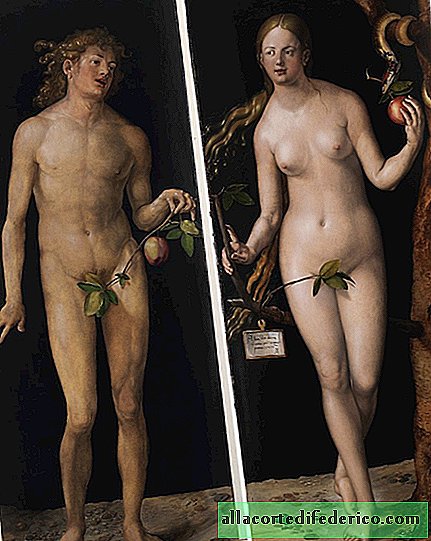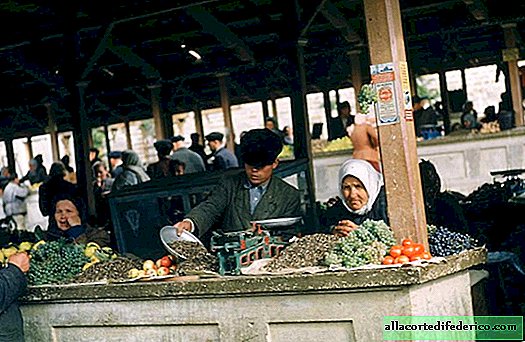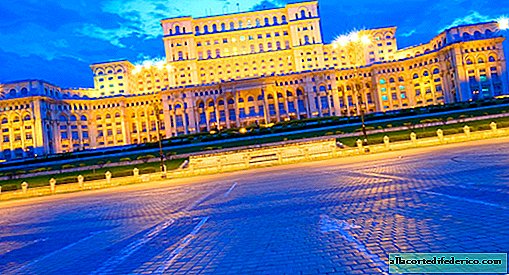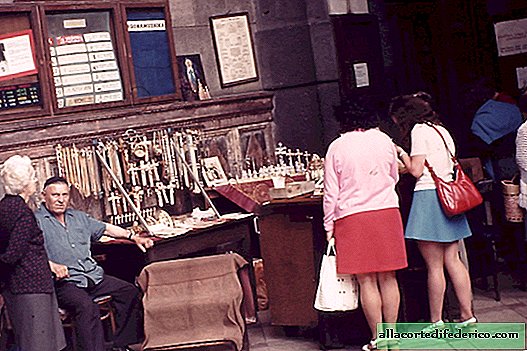Why the Romans did not drink milk
During his visit to conquered Britain, Julius Caesar was amazed at how much milk the Anglo-Saxons drink.
The ancient Roman historian and philosopher Strabo condemned the Celts for excessive addiction to dairy products. The Roman senator Tacitus, laughing, called the food of the Germans raw and fresh, especially he was surprised by the love of yogurt and milk.
The Romans sympathetically described the inferiority of alien civilizations. They perceived drinking milk as a hallmark of ignorance. Butter for them was just a good remedy for burns. You won’t eat it! Pliny the Elder was surprised to write about how barbarian tribes gladly spread it on bread. They eat a remedy for burns!
 Julius Caesar and Strabo
Julius Caesar and StraboThe ancient Romans were not unique in their neglect of dairy products. In Greece, the word "oil" had a negative connotation. They did not understand how to eat "cow curd." Moreover, they considered strangers those who kept cows and even more so produced oil. If the Greeks knew that a person eats butter, then for them it was the worst recommendation. Nothing good can be expected from an oil-eater.
For many centuries, people who liked to eat and drink milk with butter, were considered rude outcasts among developed ancient peoples.
Interestingly, high-flown Greco-Roman contempt for butter and milk stumbled on cheese. They loved cheese. Both poor and rich. In Rome, a large number of different cheeses were made: sour, sweet, smoked, spicy, with the addition of flavoring in the form of various peppers. It's like cheese is not made from milk. Those cheeses that were not produced in the Great City were brought from distant provinces. Goat cheese from Velabra, a swampy valley that was located between two hills - Palatine and Capitol, was especially fond of.
 Roman mural with cheese and asparagus
Roman mural with cheese and asparagusCheeses were often given as gifts. They were a standard breakfast, along with olives, eggs, bread, honey.
The population of the Mediterranean did not need butter from milk. They already had olive. It lasted longer, heated to higher temperatures without burning, and it was also believed that it brought more benefits to health. Even now, olive oil predominates in North Africa, most of Greece, Mediterranean France, Spain and most of Italy. In Greece, most dishes are still cooked on it.
 Engraving depicting a Celtic celebration. Posted by John Derrick
Engraving depicting a Celtic celebration. Posted by John DerrickIf you believe the stories of the Romans, the northern barbarians drank milk in whole circles. By this they led the representatives of classical southern civilizations into shock. Differences in natural conditions made dairy products a sign of distinction, the uniqueness of those who consumed them. Cheeses are well preserved in the southern climate.
Nevertheless, the use of milk was known in ancient Rome. He was drunk by slaves, the lower urban strata and villagers. Peasants and their children ate fresh milk in the bite with sweet bread. From the point of view of a Roman citizen, only unpleasant, ignorant, ill-bred people could drink milk. In the Middle East, milk was also rarely consumed.
Even after the fall of the Roman Empire, the parallel between dairy products and low social status rendered milk a bad service. They continued to consider him a "contemptuous" product.
 Roman sieve, which may have made cheese
Roman sieve, which may have made cheeseThe British adopted the Roman model of government. Along with this, Roman habits. They taunted the Irish as barbarians abusing butter.
Traveler Fiennes Morison, who had spent many years in Ireland during the time of Elizabeth I, reported that "the Irish swallow whole chunks of dirty oil." The inhabitants of the Mediterranean always with some disdain for their northern neighbors - because they drink milk.
That's who rehabilitated milk, so it is the Dutch obsessed with it. In the first years of the country's existence, they stood out among Europeans as a simple and cheerful people, incredibly absorbed in milk, butter and cheese. Even the Flemings made fun of them, teasing them with the word "kaaskoppen," or "cheese heads." The British also scoffed at the Dutch for their love of dairy products. One of their brochures said: "The Dutchman is a strong, fat, two-legged cheese worm."
 Still life with fruits, nuts and cheese. Posted by Floris van Dyck, 1613
Still life with fruits, nuts and cheese. Posted by Floris van Dyck, 1613Excluding ridicule, these statements are close to the truth. The highest Dutch nobility were proud that they could serve several varieties of butter to the table. The Dutch enjoyed low fat cream or buttermilk for breakfast. Even in almshouses, breakfast was served with cream and bread. Oil was eaten with all the products that were possible. Traditional stews were also cooked using butter.
The Dutch fleet in the 16th century became a powerful armada. Each seafarer was given once a week rations of five hundred grams of cheese, five hundred grams of butter and two and a half kilograms of bread. The historian Simon Shama estimated that in 1636 a Dutch vessel with a crew of 100 people needed provisions consisting of 450 pounds of cheese and one and a quarter tons of butter.
Every Dutchman had the right to a good head of cheese and the amount of oil he needed. The Dutch realized that the better they cultivate pastures, the more this affects livestock. The more thorough the care of the cows, the tastier the milk and cheese. Milk production increased several times. Along with this, the price of ungulates has increased. In the 16th century, it rose four times. No one else laughed at the Dutch. The country, freed from Spanish rule, the former province of the Holy Roman Empire, became a strong, independent and large European power. The heads of Dutch cheese quite rightly became "golden."

















